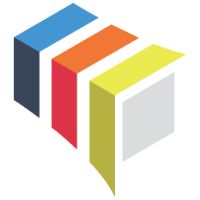QUESTIONS? CALL:
+1 (833) BOODSKAp
Weather Monitoring with Boodskap's IoT Platform
PRODUCT DESCRIPTION
- Weather Monitoring leverages IoT technology to collect real-time meteorological data such as temperature, humidity, wind speed, and precipitation. Boodskap's IoT Platform as a Service (PaaS) provides an integrated solution to gather and analyze weather data, helping farmers make informed decisions for planting, irrigation, and harvesting, and to mitigate the impacts of adverse weather conditions.
- Boodskap’s IoT platform integrates various weather sensors and devices to continuously collect data on environmental conditions. The platform's robust analytics tools provide real-time insights and predictive forecasts, enabling farmers to optimize their agricultural practices based on accurate weather information. The user-friendly dashboard allows farmers to monitor weather conditions and receive alerts for any significant changes.
- Weather stations for comprehensive weather data collection
- Anemometers for measuring wind speed
- Rain gauges for monitoring precipitation levels
- Temperature Sensors: Monitor ambient temperature.
- Humidity Sensors: Measure the moisture levels in the air.
- Wind Speed Sensors: Track wind velocity.
- Barometric Pressure Sensors: Measure atmospheric pressure.
- Rainfall Sensors: Monitor precipitation levels.
- Zigbee: Suitable for creating a mesh network of sensors within a localized area.
- LoRaWAN: Provides long-range, low-power connectivity for weather stations in remote locations.
- NB-IoT: Ensures robust connectivity in areas with limited network infrastructure.
- MQTT (Message Queuing Telemetry Transport): A lightweight messaging protocol for efficient real-time data transmission.
- A farmer uses Boodskap’s IoT platform by deploying a weather station equipped with temperature, humidity, wind speed, and rainfall sensors throughout their farm. These sensors continuously collect meteorological data and transmit it via LoRaWAN to the Boodskap platform. The platform analyzes the data and provides real-time insights and weather forecasts on a centralized dashboard. The farmer can use this information to plan planting and harvesting schedules, optimize irrigation, and take preventative measures against adverse weather conditions.
- Accurate Weather Forecasts: Provides precise and timely weather information to aid in farm planning and operations.
- Optimized Irrigation: Helps in determining the best times for irrigation, conserving water, and improving crop health.
- Disaster Management: Enables early detection and response to adverse weather conditions, reducing crop damage and losses.
- Informed Decision-Making: Offers valuable insights for planting, harvesting, and other critical farming activities.
- Increased Productivity: Ensures optimal growing conditions, leading to higher crop yields and better-quality produce. By leveraging Boodskap’s IoT platform for weather monitoring, farmers can enhance their agricultural practices, reduce risks associated with weather variability, and improve overall farm productivity and sustainability.

